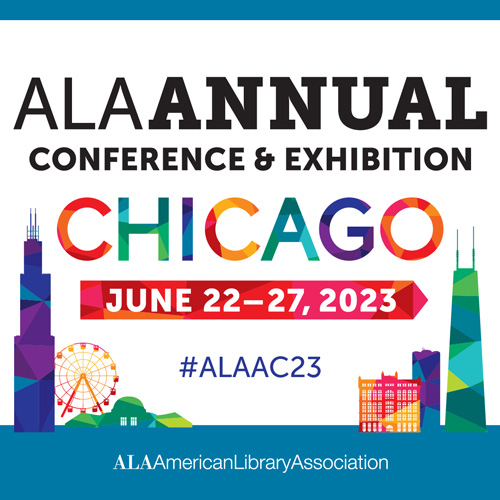Event | April 20, 2023
Share ThisJoin IMLS during the 2023 ALA Annual Conference & Exhibition in Chicago, IL June 22-27, 2023.
View the list of sessions pertaining to IMLS and IMLS-funded grants below, and visit booth #1618 each day for additional information and giveaways.
The conference and exhibits will be located at the McCormick Place Chicago, 2301 S. Dr. Martin Luther King Jr. Drive, Chicago IL. Registration details can be found on the 2023 ALA Annual Conference website.
Our Office of Library Services staff members will be available in booth #1618 to discuss IMLS grant programs and initiatives.
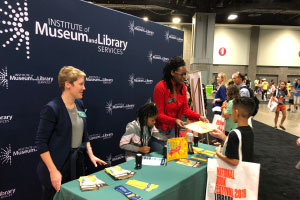
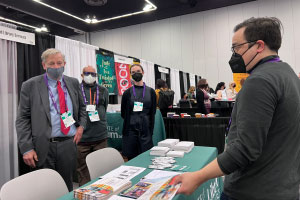
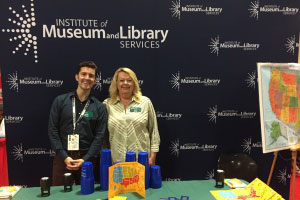
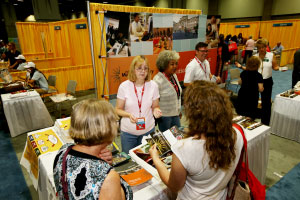
IMLS SESSIONS, SPEAKERS and MODERATORS
Saturday 6/24 11am – 12pm CT IMLS Update: Expanding Scope and Emerging Priorities
Location: McCormick Place, W179a and Digital Experience
The Institute of Museum and Library Services (IMLS) is best known for grants, but in the past year its scope has grown in exciting ways. IMLS is now heading up an Information Literacy Taskforce, providing administrative support for the re-establishment of the President’s Committee on the Arts and Humanities, and gearing up to celebrate the 250th anniversary of America’s founding with a focus on local histories and multiple voices. The IMLS Office of Library Services will share more about these and other priorities, including pertinent updates for its competitive grantmaking and LSTA Grants to States program.
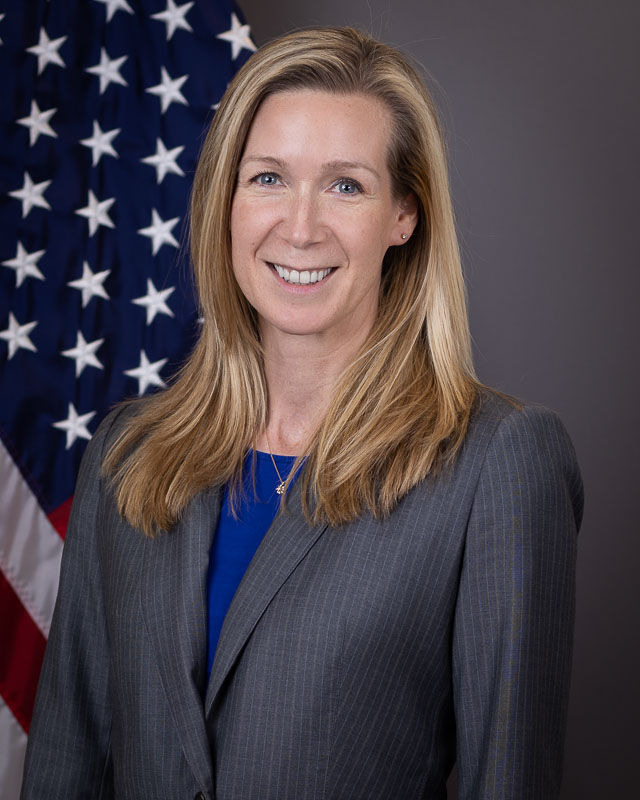
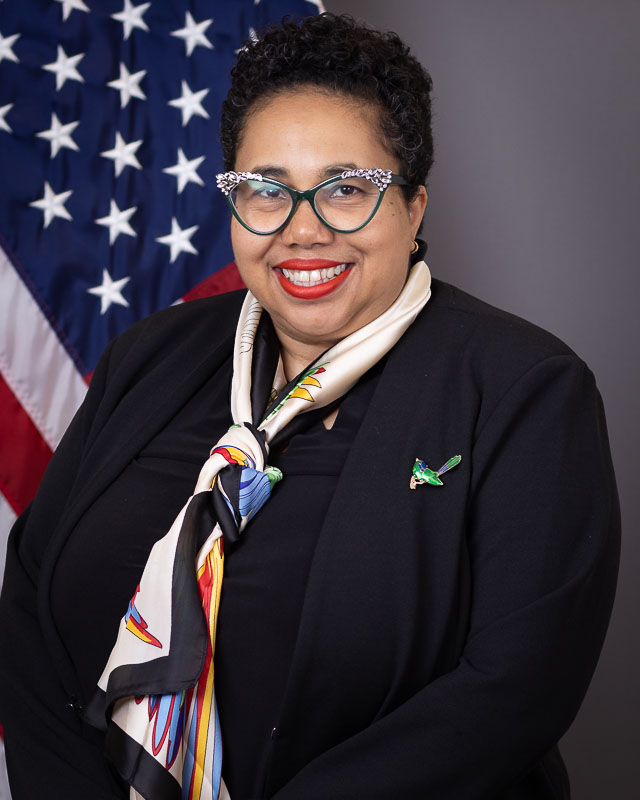
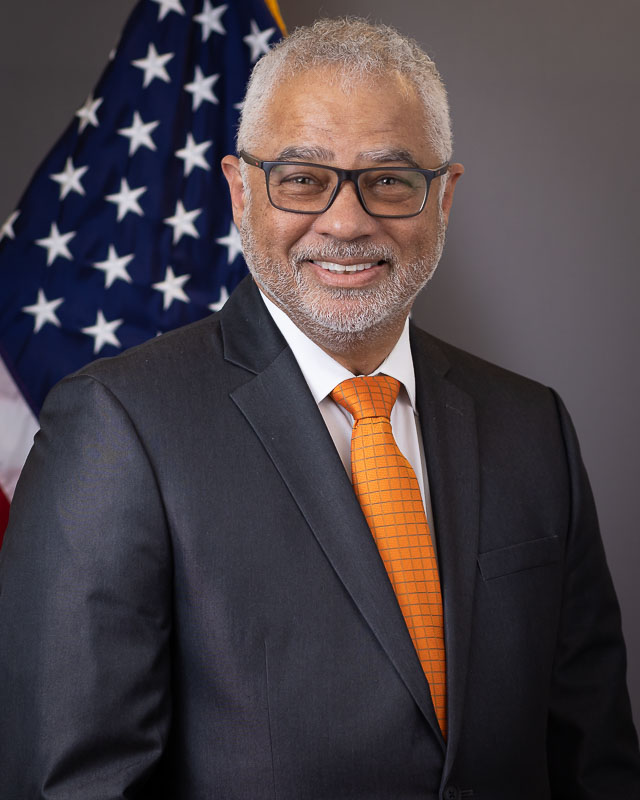
Learning Objectives:
- Understand emerging priorities that might inform future library policy and development
- Gain familiarity with IMLS’ role informing the President and Congress about trends in the field
- Prepare for strategic shifts affecting the largest source of U.S. federal funding to libraries
Presenters:
Teri DeVoe
Associate Deputy Director, Grants to States
Institute of Museum and Library Services
Cyndee Landrum
Deputy Director for Libraries
Institute of Museum and Library Services
Anthony D. Smith
Associate Deputy Director, Discretionary Programs
Institute of Museum and Library Services
Saturday 6/24 9am – 10am CT Poetry is for Everyone (Especially in Libraries): A 10-Year Review of the National Student Poets Program
Location: McCormick Place, W184bc
The National Student Poets Program (NSPP)—a collaboration of the Institute of Museum and Library Services (IMLS) and the Alliance for Young Artists & Writers—strives to inspire other young people to achieve excellence in their own creative endeavors and promote the essential role of writing and the arts in academic and personal success. The program links the National Student Poets with audiences and neighborhood resources such as museums and libraries, and other community-anchor institutions and builds upon the Alliance for Young Artists & Writers' long-standing work with educators and creative teens through the prestigious Scholastic Art & Writing Awards. To commemorate the tenth year of NSPP, Educopia has released a report from the program's alumni to assess the program's impact long after the National Student Poets complete their year of service. The report also provides valuable insight into the role of libraries as institutions that support poetry literacy in communities. During this session, representative from IMLS and the Alliance for Young Artists and Writers will provide an overview of the NSPP, former and current National Student Poets will offer their insights, all with the goal of demonstrating how any library, no matter its size or level of resources, can bring poetry literacy to their communities in a simple yet impactful way.
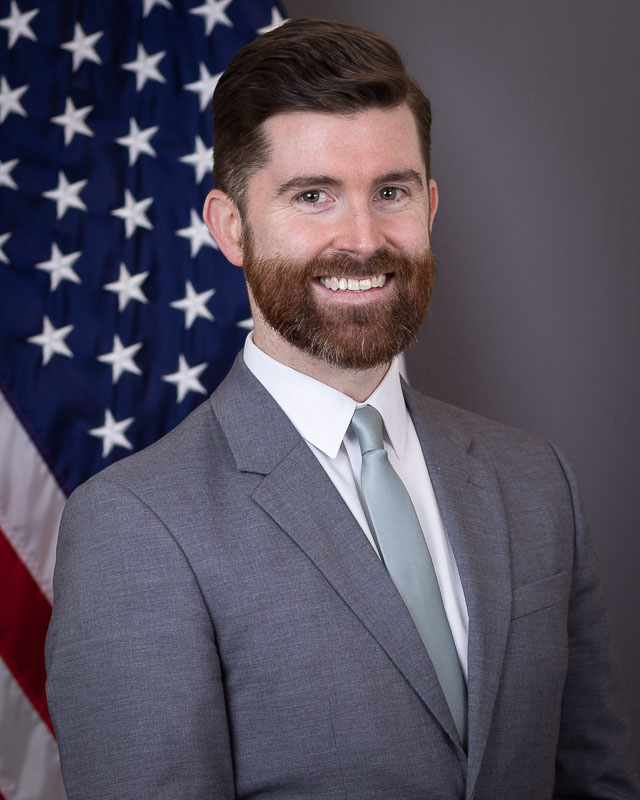
Learning Objectives:
- Upon completion, participant will be able to define the role libraries have in the arts, specifically poetry
- Upon completion, participant will be able to develop poetry programming in their library
- Upon completion, participant will be able to identify how poetry programming (from simple to complex) can support their library's community development and DEI goals
Presenters:
Dennis Nangle
Senior Program Officer
Institute of Museum and Library Services
Chris Wisniewski
Executive Director
Alliance for Young Artists and Writers
SESSIONS FEATURING IMLS-FUNDED PROJECTS
Friday, 6/23 9am – 12pm CT New Digital Tools for Capturing Learning Outcomes and Impact
McCormick Place, W175c (ticketed)
Learning outcomes in library programs like creativity, problem solving, and community building are often recognizable to facilitators, but difficult to capture and measure an impact over time. The intent of this IMLS-funded digital toolkit from Madison Public Library, Skokie Public Library, and Waupaca Public Library is to revolutionize the way librarians capture, measure, and report learning outcomes in hands-on programming. This tool is explicitly designed with the programming librarian in mind, rather than an outside evaluator. Its purposeful design aims to make observational assessment accessible to libraries big and small and busy, boots-on-the-ground librarians. Assessment and Evaluation practices for library programs that support continuous program improvement and meaningful reporting to stakeholders benefit a library's ability to serve a variety of diverse patrons. This toolkit is designed to allow librarians to tell the stories of the success of their programming with all audiences – and move away from traditional library metrics (like attendance) that do not tell the full picture. This session will share the design principle and process of this ongoing project after its initial year in development. It will also share the initial testing results of the project build completed from January-April of 2023. After sharing the initial results, participants will have a chance to get their hands on the tool through an interactive workshop component, trying out the tool in real time. The full grant team will be available to answer questions, observe, and gather feedback on the toolkit's design and usage.
Amy Holcomb
Experiential Learning Supervisor
Skokie Public Library
Sue Abrahamson
Children's Services Librarian
Waupaca Public Library
Saturday, 6/24 9am – 10am CT The Data Storytelling Toolkit for Librarians
Location: McCormick Place, W176c
Come learn about the new Data Storytelling Toolkit for Librarians (DSTL)! Under development for public and community college libraries, this IMLS-funded project is based on five years of teaching Data Storytelling at the graduate level. Anyone can learn how to bring data stories to life for library advocacy. Library data stories can help persuade decision-makers, but we need accessible tools for breaking down the dynamic process of storytelling to do this well. This talk presents tools anyone can use, including: classic advocacy arguments, evidence and forms of data for those arguments, narrative strategies that draw from common story structures, and tone and tactics for engaging storytelling with different audience attitudes—including positive, negative, mixed, and polarized by misinformed/disinforming audience members. One of the critical things we can do to support libraries in challenging times is to be prepared at any time to argue for their missions and tell a memorable story about why they matter. This talk will guide you through the problems and practical possibilities of library data storytelling and give a preview of the DSTL. Ultimately, the DSTL will connect real-world examples of data use with data stories (including narrative strategies and data visualizations) as adaptable templates for communicating and related online free resources for data exploration and visualization. The long-term vision is to cultivate data storytelling expertise as a signature expertise of our field, so that when communities have data storytelling needs, they are met at libraries and by librarians.
Learning Objectives:
- Advocate for library uses of data storytelling and the Data Storytelling Toolkit for Librarians (DSTL)
- Use story structures to strengthen their communications
- Build stories based on data that interweave information and emotion
Presenter:
Zachary Stier
Director of Children's Services, Consultant, Lecturer, Business Owner
University of Illinois, School of Information Sciences
Saturday, 6/24 9am – 10am CT Reimagining School Readiness Toolkit for Libraries
Location: McCormick Place, W183b
The Reimagining School Readiness Toolkit is a suite of free research-backed online resources created for librarians to help families prepare children aged 0-8 for success in school and life. The Toolkit was developed by the Bay Area Discovery Museum in collaboration with the California State Library. This session will provide a brief overview of the research behind the toolkit, the resources available in the Toolkit, practical implications and tips from librarians who have used the Toolkit, and evaluation findings from our 3-year IMLS grant. The Toolkit is a resource that can be use by both veteran and early career library staff and feedback from library staff nationwide suggests they feel more confident in proving programming for the youngest patrons and their caregivers.
Learning Objectives:
- Upon completion, participants will know up-to-date findings about what it means for young children to be ready for school, and where to find supporting materials for use in their work.
- Upon completion, participants will be familiar with the suite of free online resources offered in the Reimagining School Readiness Toolkit.
- Upon completion, participants will have practical ready-to-implement ideas for using the Reimagining School Readiness Toolkit resources and implementing activities with children and their caregivers.
Presenters:
Michelle D. Weissman Randall
Head of Research and Evaluation
Bay Area Discovery Museum
Kathleen Campana
Assistant Professor
Kent State University
Amy Olson
Youth Services Consultant
Kentucky Department for Libraries and Archives
Julia Shaheen
Literacy Manager
Stark Library
Celeste Swanson
Youth Services Coordinator
Lane Libraries
Penelope Shumaker
Librarian
State Library of Ohio
Pamela Brockway
Public Service Manager-Programming and Youth Services
The Public Library of Youngstown and Mahoning County
Betsy Diamant-Cohen, MLS, DCD
Executive Director
Mother Goose on the Loose LLC
Kymberlee Powe
Children/ YA Library Consultant
Connecticut State Library
Saturday, 6/24 1pm – 2pm CT Reading Nation Waterfall Year Two: The Role of Libraries in Supporting Early Children's Literacy in Tribal Communities
Location: McCormick Place, W181b
Reading Nation Waterfall (RNW) is a three-year, $1.4 million-dollar IMLS implementation grant seeking to identify and remove barriers to literacy resources and libraries for Native American children and families in five tribal communities - the Yurok Tribe, the Eastern Band of Cherokee Indian, the Lumbee Tribe of North Carolina, the Northern Cheyenne Tribe of Montana, and the Santo Domingo Pueblo in New Mexico. Overseen by San Jose State University's iSchool and founder Dr. Anthony Chow, the project positions libraries as the center of a literacy network composed of three organizations where children are: Head Start (children 3-5 in poverty), tribal/public library, and elementary school library. In partnership with Little Free Library, each tribal community has strategically placed a little free library in front of each of the three locations. In doing so, children and caregivers have a “waterfall” of new and gently used books that are curated by librarians to be culturally relevant and of the highest quality. Preliminary findings suggest that many of the children in our five tribal communities may be growing up in households with very few books and who visit their public library rarely. What would happen if these children had unfettered access to brand-new, high-quality, librarian curated books conveniently and strategically placed where they already are almost every day? That they can also browse, select, and bring home? Our research hypothesis is that if we can systematically infuse enough books into each child and community’s book ecosystem, that incoming kindergarten entrance grade equivalency literacy rates would increase, that fourth grade reading scores would also increase, and, due to an increased number of children who have built a love of reading from 0-10 years old, that library usage and circulation would also increase. Come meet the stars of each of the five participating tribes – the RNW librarians themselves who have worked tirelessly to help make our project a success on behalf of the children they serve. We will also share lessons learned, best practices, and provide resources to support replicating aspects of our project in your local communities. For more information visit us at www.readingnationwaterfall.com.
Learning Objectives:
- Advocate for library uses of data storytelling and the Data Storytelling Toolkit for Librarians (DSTL)
- Use story structures to strengthen their communications
- Build stories based on data that interweave information and emotion
Presenters:
Anthony S. Chow
Director
San Jose State University- School of Information
Sophia LaMonica
MLIS Student and Project Manager
SJSU
Lynette Dial
Library Director and Project Manager
Hoke County Library and Registered Member of the Lumbee Tribe
Adrienne Violett
Director and Tribal Librarian
Chief Dull Knife College
Adam Lambert
Library Manager
Qualla Boundary Tribal Library
Heather K. Sellers
Program Director Reading Education
UNC Pembroke
Kathryn Grogan
External Evaluator
Wested Evaluation Services
Leah Choi
Digital Asset Coordinator
The Huntington Library, Art Gallery, and Botanical Gardens
Sunday, 6/25 9am CT Libraries.Today: National Forum Findings and Policy Recommendations on Post-COVID School Libraries
Location: McCormick Place, W181a
The Libraries.Today National Leadership Forum Series, a project made possible in part through funding from IMLS, explored how school libraries responded to the pandemic. On of the primary project goals was to identify ways in which the services, space/place, and instruction of school libraries pivoted to meet new requirements during and after the COVID shutdowns. To that end, we invited librarians from around the country to participate in panels during the forums. The project also captured audience input and stories to help us better understand the changes that took place. The videos from the forum, reports, and resources are online at the Libraries.Today Website.
Learning Objectives:
- Upon completion, participant will be able to identify at least five key findings from the Libraries.Today IMLS grant project exploring changes in post-COVID school libraries.
- Upon completion, participant will be able to make effective use of the school library marketing tool, The Day the Librarians Disappeared ebook, developed through the Libraries.Today IMLS grant.
- Upon completion, participant will be able to communicate with their school administrators and legislators about school library policy recommendations for improving services in post-COVID school libraries.
Presenters:
Christopher Harris (he/him/his)
Director, School Library System
Genesee Valley BOCES School Library System
Amanda Kordeliski (she/her/hers)
Director of Libraries and Instructional Technology
Norman (OK) Public Schools
Sunday, 6/25 11am – 12pm CT Black History Month (Grant)
Location: McCormick Place, W179a and Digital Experience
BCALA was recently part of a grant examining Black History Month programming in public libraries. University of Michigan professor Dr.Deborah Robinson led this effort in collaboration with BCALA and the Public Library Association. An excerpt from an announcement about this effort notes, "The Black History Month Programming in Public Libraries research team recently published preliminary findings. Public libraries were asked if they facilitated Black History Month programming. The study found that 22 percent of the respondents from branch libraries and 13 percent of respondents from district/county system libraries did not conduct Black History Month programming. The preliminary findings also found a variety of barriers to the implementation of Black History Month programming. Robinson comments on these barriers, and offers suggestions on how libraries can make improvements in their Black History Month programming."
Learning Objectives:
- Attendees will be able to describe Black History Month efforts executed by public libraries.
- Attendees will be able to identify who was involved in this grant and research project.
- Attendees will be able to describe the history of Black History Month as it pertains to American public libraries.
Presenter:
Nichelle Hayes
BCALA President
BCALA
Sunday, 6/25 11am – 12pm CT Accessible Library Services through National Library Service
Location: McCormick Place, W181b
Join the National Library Service for the Blind and Print Disabled and the Washington State Talking Book and Braille Library for an in-depth review of the library program that provides free, accessible content to people with print disabilities. Understand how to help serve your patrons better by leveraging our accessible reading materials including audio and braille books and magazines. Maintain your patron relationships by learning how effective patron-sharing with your local NLS network library will expanded services for people struggling to use regular print materials. Learn how to identify and serve patrons of your library for whom print materials are no longer accessible. NLS serves readers with visual disabilities, both temporary and permanent, and well as reading disabilities such as dyslexia and any physical disability that prevents someone from holding or reading print materials such as arthritis, cerebral palsy, Parkinson’s, or a limb difference. Understanding how to provide access to information for this diverse group of patrons will positively impact your library’s ability to serve its users.
Learning Objectives:
- Upon completion, participant will be able to identify patrons to qualify for service by the National Library Service due to a print disability.
- Upon completion, participant will be able to successfully sign up a patron for service using the application.
- Upon completion, participant will be able to understand and explain accessible products and services offered by the National Library Service.
Presenters:
Alice O'Reilly
Chief, Collections Division
National Library Service for the Blind and Print Disables, Library of Congress
Danielle H. Miller
Director and Regional Librarian
Washington Talking Book & Braille Library
Sunday, 6/25 1pm – 2pm CT E-rate Innovations: Fostering Access to Underserved Communities
Location: McCormick Place, W179a and Digital Experience
Libraries are exploring new methods of reaching underserved communities through kiosks, satellites, mini-branches, or other unstaffed locations. Hear about the experiences of several rural Kentucky public libraries in planning for and opening these locations in areas with limited transportation and limited access to technology. Discussion will include agreements with local government, costs to implement and maintain services, and use of federal E-rate funding for eligible expenses. This session will also address upcoming changes to the E-rate program, including support for small and tribal libraries, eligibility for next-gen firewall features, and the proposed national bidding portal.
Learning Objectives:
- Evaluate innovative ideas for reaching un and underserved populations with broadband and digital equity
- Identify federal funding opportunities and local partnership avenues that can benefit their programs and services
- Engage with the nuances of federal funding opportunities
Presenters:
Megan Janicki
Deputy Director, Strategic Initiatives
ALA
Lauren Abner
Technology Consultant
Kentucky Department for Libraries & Archives
Bob Bocher
Senior ALA Fellow
ALA
Sunday, 6/25 2:30pm – 3:30pm CT Designing Community-Responsive Mental Health Programs
Location: McCormick Place, W176c
Are you responsible for health and wellness programming in your library? Have you ever wondered how to create a mental health program that speaks directly to your community? Learn about two of NYPL’s innovative wellness projects: the Community Mental Health Project and the IMLS grant: Building Public Library Capacity for Supporting Young Adult Engagement and Wellbeing. You will leave this session with practical ideas that you can implement at your library, big or small, to support community mental health and wellbeing. As Library staff started to grapple with the long-term effects of the Covid-19 pandemic, the need for a robust health and mental wellness program plan became abundantly clear. It was also apparent that Black and Latinx communities were hit hardest and needed more intentional resources. A four-part plan was developed to focus on: partnership building with mental health professionals, community engagement, collection development and creating community-responsive programs. The resulting Community Mental Health Project led to the development of a series of short bi-lingual animated videos to provide mental health information tailored to youth, adults and older adults. These were based on and in response to direct feedback from members of the community. Programs and an expanded collection on mental health related books written for and by Black and Latinx people were also a key element of the project. This project inspired a successful ILMS project focused on teen mental health in collaboration with YALSA and Young Adult library staff throughout the country. Join this session to hear more about the types of partnerships that were important to this project and what they led to, plus practical tips on community-responsive programming and building your collection.
Learning Objectives:
- Be able to design a community-responsive mental health program.
- Be able to create a collection development process to select culturally appropriate titles.
Presenters:
Anita Favretto
Director, Community Outreach and Engagement
ALA
Caitlyn Colman-McGaw
Manager of Young Adult Staff Engagement & Support
New York Public Library
Stephanie Anderson
Assistant Director, Selection
BookOps - The New York Public Library & Brooklyn Public Library
Derrian Swany
Contracts and Project Coordinator
ALA (speaker with NYPL)
Melissa Baker
Chief Operating Officer
Black Health
Monday, 6/26 9am – 10am CT Academic Libraries, Campus Partners, and Student Success
Location: McCormick Place, W176c
The trend of bringing campus partners into academic library buildings started 20 plus years ago with a focus on student success. Some early models were rooted in decisions to re-purpose space within academic libraries, and the groups did not always have common goals. Today, there is a shift to campus partnerships that are strategic, sharing service values and goals. The changing roles of academic libraries, shifting from focusing on print collections to services has expanded opportunities. Attendees will learn about existing campus partnerships as well as learn about new partnerships just forming. Attendees will also learn about different approaches and methods for developing the partnerships. Grand Valley State University’s Mary Idema Pew Library Learning and Information Commons opened in the fall of 2013, and they now have almost ten years of lessons learned to look back on and share with attendees. Seattle University, which opened the renovated/expanded Lemieux Library and McGoldrick Learning Commons in 2010, is currently launching an effort to expand campus partners, both on-ground and virtual, beginning with a review of compatibility characteristics. Their focus today is on enhancing the student experience as well as infrastructure and support for undergraduate research. At Kenyon College the planning process for the library spaces space and partner service models began with an inclusive conversation to look at what students need to thrive as scholars and after college. Texas A&M University-Corpus Christi capitalized on funds and evolving strategies resulting from the pandemic. Using CARES Act Funds, the library reduced their collection footprint by moving reference entirely online to repurpose space into a learning commons in partnership with the Office of Student Success. Moving from context and background to assessment and research and finally to strategy and planning, panelists will address re-thinking how academic libraries and campus partners work together.
Learning Objectives:
- Attendees will learn about and explore existing campus partnerships as well as learn about new partnerships just forming.
- Attendees will be able to assess different approaches and methods for developing the partnerships. Gain perspective from each of the different groups to understand common goals and overlap.
- Attendees will discover how space and planning decisions can enhance and improve access to services.
Presenters:
Kristin Meyer
Associate Dean of Collections, Digital Strategy, and Strategic Organizational Development
Grand Valley State University
Amy Badertscher
Associate Vice President for Libraries and Strategic Innovation
Kenyon College
Catherine Rudowsky
Dean of University Libraries
Texas A&M University-Corpus Christi
Jerel Benton
Associate Vice President for Student Success
Texas A&M University-Corpus Christi
Chelsea Riddle
Interim Coordinator, Learning Commons Partnership
Seattle University
David Zenk
Principal
Gund Partnership
Monday, 6/26 4pm – 5pm CT Welcoming Spaces: Creating Welcoming Environments for Immigrant and Refugee Families
Location: McCormick Place, W180 and Digital Experience
This session reviews the information gathered from the Welcoming Spaces National Forum, sponsored by IMLS and executed by the Association for Library Service to Children and the Association of Children's Museums, and provides best practices for libraries looking to improve their outreach and service to immigrant and refugee communities. The Welcoming Spaces National Forum brought together members of the library and children's museum communities to document extant efforts, exchange ideas, and cultivate dialogue across two family-oriented services (libraries and children's museums) and ascertain areas for improvement and best practices in community outreach and patron service.
Learning Objectives:
- Participants will be able to assess opportunities for a library or museum space to improve and become more welcoming to immigrant and refugee populations in communities.
- Participants will be able to identify current strategies and new approaches to welcome patrons from immigrant and refugee communities into their children’s museums or library.
- Participants will be able to determine possible community partners and partnerships to help create spaces where all patrons feel welcomed.
Presenters:
Sarah Polen
Program Officer
ALSC / ALA
Jacqueline Kociubuk
PhD Student
University of Wisconsin-Madison
IMLS RESOURCES
2023 ALA ANNUAL CONFERENCE LINKS:
2301 S. Dr. Martin Luther King Jr. Drive
Chicago, IL

